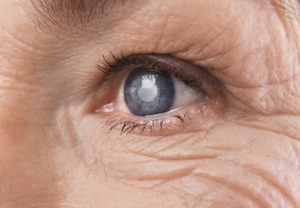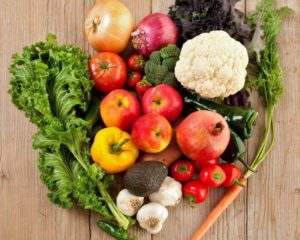Elderly Vision Problems
Elderly vision problems like glaucoma can be prevented with the right diet, exercises and nutrition. Taking good care of your body and your health is what will keep you remaining strong and independent as you get older. Why have trouble, when trouble can be avoided, right? As seniors it pays to know how to prevent glaucoma.
If you’ve been paying close attention, you will have noticed that all my articles focus on the idea of independence. My personal definition of independence is, more than likely, different from how you define it for yourself. We may all be different, but we’re also alike, subject to the same shortcomings and illnesses. There’s no getting away from it. Growing older is not always fun. Elderly vision problems are something we should all try to avoid.
Glaucoma Prevention

Preventing glaucoma can be fairly simple. Writing for the Glaucoma Research Foundation, Robert L. Stamper, MD, Director Emeritus of the Glaucoma Service at University of California San Francisco, recommends the following:
Regular eye exams – People between ages 55 and 64 should have eye exams every two years. Adults 65 and older should be tested every 6 to 12 months.
Regular exercise – Numerous studies have shown that moderate exercise on a regular basis will lower one’s intraocular pressure, one of the larger risk factors associated with glaucoma.
Protective Eyewear – When participating in sports activities or doing home improvement projects, always wear protective eyewear.
Probably the best preventive measure is a regular eye exam with your ophthalmologist. Like many other diseases, glaucoma has been found to be congenital. If you are diagnosed with glaucoma, there are treatments.
Glaucoma Treatments
Glaucoma eye drops are among the most commonly used traditional treatments for glaucoma.
Eye drops – Depending on the diagnosis, one of several types of eye drops may be prescribed by your physician.
Oral medications – Should eyedrops alone not work, your doctor may prescribe one of several oral medications.
Surgery – Should eyedrops and pills not prove effective, your doctor may try one of several surgical procedures, including laser surgery.
Nothing is ever foolproof, but there are multiple studies linking a healthy diet and good exercise and nutrition will keep you on track towards preventing the disease. Disease is simply the “body” at a “Dis-ease-d state” and we all know according to modern neuroscience studies that the human body, mind, spirit and heart along with the brain and all our magnificent biological wonders happening in our bodies and minds can collectively and individually work to change from a state of disease to one of healing, growth and spiritual prosperity.

Preventing Glaucoma with Diet And Exercise
Glaucoma prevention is clearly started at the roots of a healthy diet and good nutrition. We recommend speaking with our local resident homeopathic expert for natural ways to keep your nutrition inline with a healthy life that doesn’t include glaucoma.
Homeopathic vitamins and nutraceuticals can be a solid way to stay on track with life in all 4 key areas… The mind, the body, the spirit and the heart. Your entire self can be conscious and self aware with how you take care of your body and mind to avoid elderly vision problems.
Numerous studies have linked a healthy diet as the leading way to prevent glaucoma and the growth of glaucoma to its outright eradication. Time4Seniors.com does not take sides with any claims. The purpose here is only to show the link between a healthy diet plan and at least slowing down the progression of glaucoma. To avoid glaucoma treatments by simply being self aware enough and conscious enough to eat a proper glaucoma prevention diet.
Glaucoma Diet And Exercise
Amish Koshi, M.D., a glaucoma specialist at Kaiser Permanente Northern California, often submits articles to the Glaucoma Research Foundation. In 2016, Dr. Koshi shared that, “certain fruits and vegetables with higher vitamin A and C content have been shown to reduce glaucoma risk as well. Some of the most helpful fruits and vegetables for healthy vision are collard greens, cabbage, kale, spinach, Brussels sprouts, celery, carrots, peaches, radishes, green beans, and beets.”
Additional research has shown that there could be a connection between foods like salmon, tuna, and shellfish and reducing the risk of glaucoma. Writing for Glaucoma Australia, Helen Carter, a respected journalist, shares that there is evidence showing that foods high in omega-3 fatty acids can greatly reduce the risk of glaucoma.
Healthy vision is vital to independence. It is incumbent upon caretakers and adult children to be able to recognize the symptoms of glaucoma, taking steps to help reduce its progression. Time 4 Seniors is a big believer in making healthy lifestyle choices. This includes regular exercise and making healthy food choices. I recommend, of course, regular checkups and, when necessary, protecting your eyes with goggles or glasses.


Recent Comments